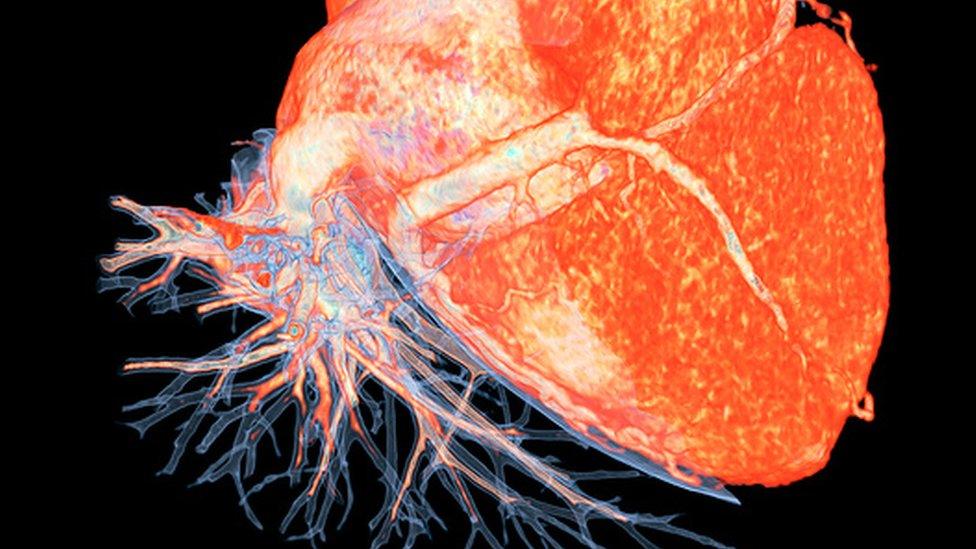Hundreds more surviving heart failure in hospital, study shows
- Published
- comments

Fewer patients are now dying from heart failure in hospitals in England and Wales
Hundreds more people are surviving heart failure through better treatment after being admitted to hospital in England and Wales, a study suggests.
The National Heart Failure Audit, external found that 8.9% of patients had died in 2015-16, down from 9.6% the previous year, saving around 500 lives.
However, it said there were still too many deaths and too much variation across the country.
Heart experts said more patients should get the best possible treatments.
These include access to crucial medicines and being seen by a heart specialist soon after arrival in hospital.
In 2010-11, the death rate was 11.6% and apart from a slight rise in 2013-14, the rate has continued to fall.
The most recent figures are based on more than 66,000 admissions to English and Welsh hospitals where the main diagnosis was heart failure.
This is a condition caused by the heart failing to pump enough blood around the body at the right pressure.
It can cause shortness of breath, exhaustion and ankle swelling - and when these symptoms develop quickly, patients need urgent hospital treatment.
Sudden heart failure is most common among the elderly, making it a particular challenge for the NHS as the population ages.
Heart specialists
In 2015-16, the audit showed, 80% of patients with heart failure had been seen by heart specialists and nine out of 10 patients had had a detailed scan of their heart, called an echocardiogram.
It also found an increase in the percentage of patients prescribed three key medicines for heart failure - but admitted there was still room for further improvement.
The audit said: "This year's report shows modest but important improvements, which are to be celebrated.
"But an 8.9% in-patient mortality cannot be accepted and requires urgent attention within every acute trust admitting patients with heart failure."
Sir Bruce Keogh, national medical director at NHS England, said: "Increasing numbers of patients are getting specialist help and the full range of treatments thanks to years of world-leading scientific and clinical research and the efforts of NHS staff.
"It is a very significant problem, and we recognise that there is scope for even more improvement - but the progress highlighted today will be a spur for us to do even more to improve care and survival rates."
'Promising signs'
Prof Sir Nilesh Samani, medical director at the British Heart Foundation, said heart failure affected the lives of more than half a million people in the UK.
"This audit shows promising signs that the quality of hospital care for heart failure is improving, with fewer people dying as a result," he said.
"However, we need to build on this progress.
"It is imperative we continue to close variations in heart-failure care across hospitals and ensure more patients receive the best possible treatments."
- Published9 December 2010